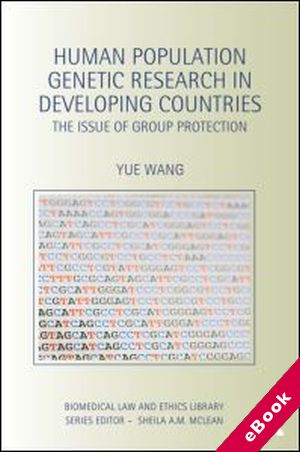
The device(s) you use to access the eBook content must be authorized with an Adobe ID before you download the product otherwise it will fail to register correctly.
For further information see https://www.wildy.com/ebook-formats
Once the order is confirmed an automated e-mail will be sent to you to allow you to download the eBook.
All eBooks are supplied firm sale and cannot be returned. If you believe there is a fault with your eBook then contact us on ebooks@wildy.com and we will help in resolving the issue. This does not affect your statutory rights.
Human population genetic research seeks to identify the diversity and variation of the human genome and how human group and individual genetic diversity has developed. Since this research targets specific groups often living in isolated, rural areas of developing countries in order to discover variation, it also raises many pressing ethical and legal concerns as these groups could be considered vulnerable to exploitation.
The book analyses the particular issues raised by genetic research on populations as a whole. While much of bioethics focuses on the individual participants Yue Wang argues that the interests of target groups are also seriously implicated in this kind of research. The book explores whether developing countries are well prepared for the ethical and legal conduct of human population genetic research and to what degree the current frameworks in place in Western developed countries where the researchers usually come from provide adequate protections. The People’s Republic of China is used as an example to investigate current regulations for both human subject protection and group protection in developing countries. The book argues that current regulations are far from sufficient to prevent harm to vulnerable groups and it puts forward an alternative model for group protection in the context of human population genetic research in developing countries